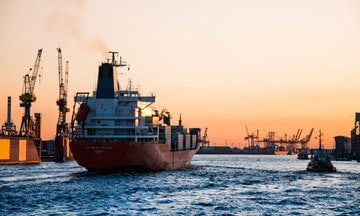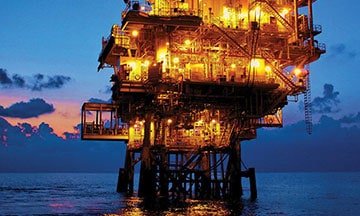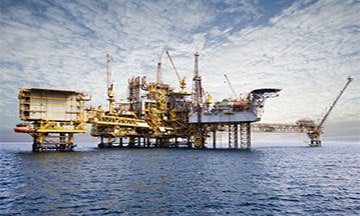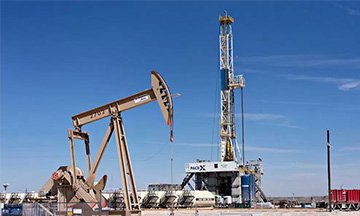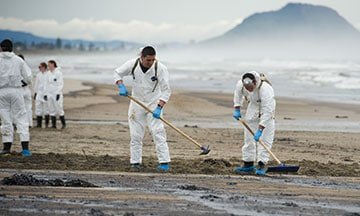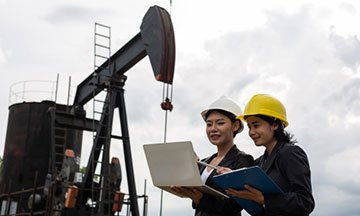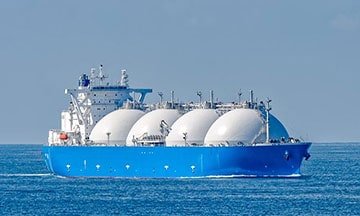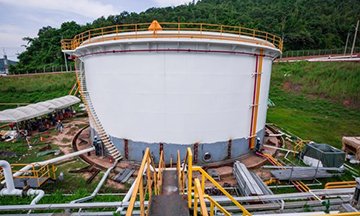Marine Accident and Incident Investigation and Reporting
| Date | Format | Duration | Fees | |
|---|---|---|---|---|
| 28 Apr - 09 May, 2024 | Live Online | 10 Days | $4495 | Register |
| 26 May - 06 Jun, 2024 | Live Online | 10 Days | $4495 | Register |
| 03 Jun - 21 Jun, 2024 | Live Online | 15 Days | $6745 | Register |
| 22 Jul - 02 Aug, 2024 | Live Online | 10 Days | $4495 | Register |
| 19 Aug - 23 Aug, 2024 | Live Online | 5 Days | $2250 | Register |
| 24 Sep - 26 Sep, 2024 | Live Online | 3 Days | $1750 | Register |
| 09 Oct - 11 Oct, 2024 | Live Online | 3 Days | $1750 | Register |
| 04 Nov - 12 Nov, 2024 | Live Online | 7 Days | $3147 | Register |
| 23 Dec - 31 Dec, 2024 | Live Online | 7 Days | $3147 | Register |
| Date | Venue | Duration | Fees | |
|---|---|---|---|---|
| 12 May - 23 May, 2024 | Doha | 10 Days | $9150 | Register |
| 13 May - 17 May, 2024 | Dubai | 5 Days | $4750 | Register |
| 24 Jun - 12 Jul, 2024 | Dubai | 15 Days | $12525 | Register |
| 08 Jul - 19 Jul, 2024 | Lisbon | 10 Days | $9850 | Register |
| 29 Jul - 02 Aug, 2024 | Dubai | 5 Days | $4750 | Register |
| 05 Aug - 09 Aug, 2024 | Amsterdam | 5 Days | $5695 | Register |
| 05 Aug - 09 Aug, 2024 | Dubai | 5 Days | $4750 | Register |
| 09 Sep - 13 Sep, 2024 | Dubai | 5 Days | $4750 | Register |
| 22 Sep - 24 Sep, 2024 | Doha | 3 Days | $4100 | Register |
| 30 Sep - 02 Oct, 2024 | Rome | 3 Days | $4475 | Register |
| 28 Oct - 01 Nov, 2024 | Dubai | 5 Days | $4750 | Register |
| 18 Nov - 29 Nov, 2024 | Houston | 10 Days | $9850 | Register |
| 25 Nov - 29 Nov, 2024 | Dubai | 5 Days | $4750 | Register |
| 09 Dec - 20 Dec, 2024 | Barcelona | 10 Days | $9850 | Register |
| 09 Dec - 13 Dec, 2024 | Dubai | 5 Days | $4750 | Register |
Course Overview
Marine accidents involve any damage to ships and other facilities involved in ship operation. These accidents could range from damage to ship structures to equipment, or even hindrances in smooth operations. Marine accidents are treated seriously because of the extent of damage it can cause to the health and safety of marine professionals and aquatic life.
Investigation of such incidents is of utmost importance to prevent recurrence. Marine accident investigation is the process of detailed, systematic examination of marine accidents to determine the causes and present recommendations to avoid such accidents in future.
Investigation of marine accidents involves professional investigators who conduct investigations through interviews, gather evidence from the accident site, conclude probable causes and recommend future action. One of the most common forms of marine accidents is marine unit collisions (more specifically, ship collisions).
Marine unit collision refers to the incident of a structural impact between two marine units or ships or between one marine unit or ship and a floating or still object. High vessel speeds and denser seas increase the probability of marine accidents. Ship collisions damage life and property and contribute to marine pollution.
Most often, a marine accident is not one that comes without warning signals. Smaller frequent incidents lead to another, which amplify to result in a marine accident. Thus, identifying smaller signs and taking timely action is important.
Marine accident investigation occurs in relation to the loss of people, structures, machinery, equipment, etc. Structured and systematic approaches to investigation guarantee minimal risk of recurrence.
Therefore, marine accidents have many stakeholders, right from personnel responsible for being alert and noting signs to investigators drawing conclusions and making recommendations to prevent recurrence.
This Zoe training course will empower you with the necessary understanding of marine unit collisions, causes, impact, next steps and action plans. It will also give you detailed information on the investigation process in case of a collision so that you can help your organisation take good care and precautions with respect to these areas.
Further, this Marine Accident and Incident Investigation and Reporting course will help enhance your analytical skills and perspective to support you in undertaking specific and specialised responsibilities related to investigation of such incidents, thus increasing your opportunities for employment and enhancing your professional profile.
This course will also give you the knowledge and confidence to drive standard compliance and accident prevention in your organisation. It will also help you be prepared for any investigation needed in case of accidents.
Course Objectives
The main objective of this Marine Accident and Incident Investigation and Reporting course is to empower marine professionals with—
- in-depth information and knowledge of investigations related to marine accidents, particularly marine unit or ship collisions
- the required information and experience to effectively manage a collision incident, taking necessary and timely action
- the foresight, awareness and knowledge to note initial or sequential signs implying the possibility of a major accident
- the required confidence and exposure to effectively handle requests and requirements in the event of investigation of a collision
- the necessary skillset, capability and confidence to undertake audits for the organisation to ensure adherence to standards of operation
- the required confidence and ability to undertake highly sensitive roles of responding and taking action in the event of accidents, specifically collisions, thus building credibility and demonstrating one’s potential
- additional skills and information to develop lateral interests of investigating marine accidents and suggesting next steps, thus increasing avenues for progression within and outside the organisation
Training Methodology
This Zoe Talent Solutions’ training course has been created keeping in mind flexibility for amendments as per each session’s training audience. Lectures and presentations form a major part of the trainer–trainee interaction.
Trainee–trainee–trainer interaction is encouraged through group activities, debates, presentations and role-plays. The trainer also encourages trainees to share their real-life experiences related to the topic of discussion, and these are then analysed in-depth to relate to a practical scenario and apply the theory gathered through the training.
This Marine Accident and Incident Investigation and Reporting course follows Zoe Talent Solutions’ effective Do–Review–Learn–Apply Model.
Organisational Benefits
By marine professionals undertaking this course, their organisations will benefit in the following ways:
- Experienced and trained staff to conduct operations in accordance with set standards and guidelines to avoid marine accidents
- More confident and experienced employees to serve as internal auditors of compliance with agreed standards
- Better risk and accident management
- Smoother, risk-free and uniform operations
- Prompt action and effective handling of an accident incident, particularly collision
- More aware and informed employees to identify signs early enough and prevent catastrophic losses
- Complete professional support to the investigation process because of readily available data in specific areas
- Prompt action, quicker investigation and more robust implementation of next steps and action to prevent recurrence
- Contribution to environmental conservation and pollution prevention through continuous efforts to reduce marine accidents
Personal Benefits
Marine professionals undertaking the Marine Accident and Incident Investigation and Reporting course will benefit in the following ways:
- In-depth information and knowledge of marine accidents, particularly collisions, and the investigation process
- More information and experience to drive and manage operations in accordance with international standards and conduct audits to check compliance
- Increased confidence and skillset to partake in the investigation process, thus increasing one’s avenues for lateral growth
- Enhanced skill set, confidence and capability to effectively manage accidents and take appropriate and timely action
- Increased awareness and attention to note smaller warning signs of a catastrophic event and to take appropriate and timely action
- Greater confidence and more experience to undertake critical roles of extremely high responsibility related to marine accidents and investigations, thus fostering career growth and progression
- A sense of satisfaction of contributing to environmental conservation and pollution prevention
Who Should Attend?
- Senior officials of the marine industry who play important roles as witnesses, owners or otherwise during accident investigation
- Investors and shipping company shareholders who need to be aware of investigative processes and protocols following marine accidents
- Ship crew and other marine vehicle crew who need to know what to track in order to identify early warning signals or avert accidents and what to do in the event of a collision
- Private investigators and investigating agencies responsible for gathering relevant evidence to identify the causes of an accident and suggest next steps
- Internal and external stakeholders and legal advisors who need to understand the impact of accidents and the following investigative process
- Any other individual or legal intern who would like to know about the investigation process in case of a marine unit collision
Course Outline
The Marine Accident and Incident Investigation and Reporting course will cover the following topics important to understanding marine unit collisions and the associated investigation process:
Module 1 – Types of Marine Accidents
- Offshore oil rig mishaps
- Cruise vessel mishaps
- Commercial fishing mishaps
- Accidents on tugboats, crude oil tankers and cargo ships
- Grounding of ships
- Crane mishaps
- Accidents in shipyards, on barges or on diving support vessels
- Cargo hauling accidents
Module 2 – Steps of Investigation of a Marine Accident
- Interview of witnesses
- Information and evidence collection for analysis
- Conclusion of probable findings
- Recommendations on next steps
Module 3 – Probable Causes of Marine Unit Collisions
- Lack of communication between vessels
- Incompetence
- Poor knowledge
- Restricted visibility
- Bad weather conditions
- Failure of critical systems for vessel navigation
Module 4 – Action During or After Collisions
- Inform master and engine room
- Send distress signal immediately
- Record important data
- Sound the alarms
- Assess the damage
- Take immediate action in case of damage
- Check for oil spills
- Reach the nearest port, if possible
Module 5 – Fundamentals of Accident Investigation
- Legislation and regulation
- Appraisal of the accident site
- Disaster response
- Wreckage recovery
- Evidence collection
- Hazard management
Module 6 – Pointers for Safety Investigation after Collisions
- Vessels’ ability to maintain stability, movement and navigation
- Functionality of major mechanical systems and equipment
- Crew, cargo and environment safety
- Notification of all related stakeholders
Module 7 – Scenarios Mandating Investigation of Collisions
- Loss of human life
- Environmental impact due to spills
- Financial consequences to local communities in the proximity
- Financial consequences to ship owners
- Damage to coastal and offshore infrastructure
Module 8 – Importance of Investigation of Collisions
- Protection of health and safety of workers and public
- Preservation of organisations’ human and capital resources
- Improvement in quality, reliability and productivity
- Continuous service to clients and customers
- Compliance with regulatory and insurance requirements
Module 9 – Ways to Prevent Collisions
- Keep a constant lookout
- Avoid ship channels
- Use up-to-date navigation charts
- Do not underestimate the speed of a big vessel
- Be visible
- Keep watch at night (including ship’s lights)
- Know whistle signals
- Use the radio and binoculars
- Choose safe anchorages
- Carry a radar reflector
Module 10 – Features of the Investigative Body
- Shall be independent
- Have qualified investigators
- Keep operational readiness
- Use a common approach/methodology
- Provide fair treatment to seafarers
- Protect individual and witness statements
- Provide confidentiality
